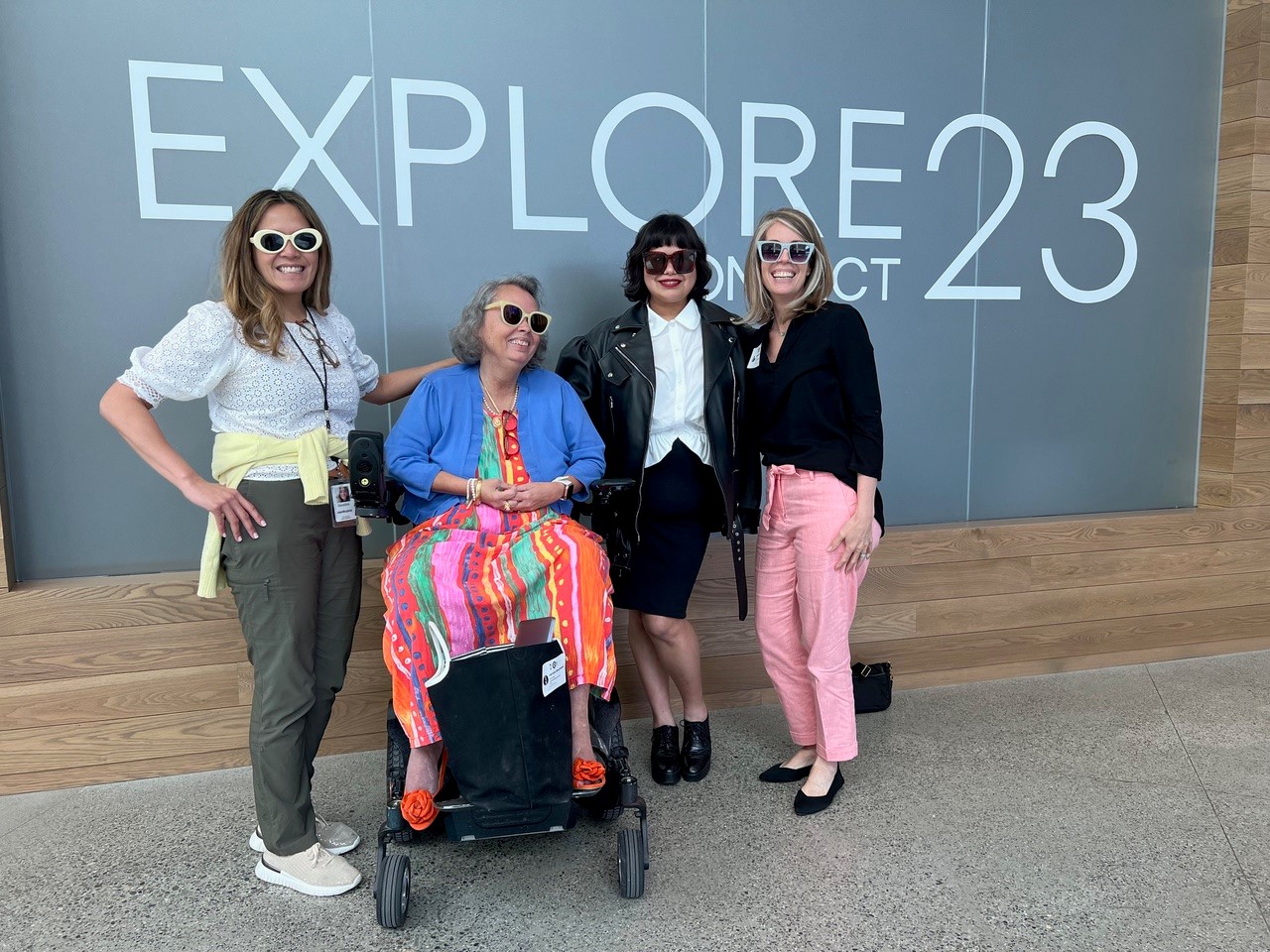2023 DEI Impact Award: Becoming rentABLE
9/10/2024

The VRMA Excellence Awards celebrate and recognize the incredible work, contributions, and impact that vacation rental professionals have made in the past year. We are highlighting each of the 12 award recipients in 2023, continuing today with the Diversity, Equity, and Inclusion Impact Award: Becoming rentABLE.
Accessibility is a fundamental aspect of inclusivity and diversity, but for far too long, the short-term rental industry has fallen short in catering to the needs of those with disabilities. Recognizing this deficiency, Becoming rentABLE has emerged as a transformative force, pushing the boundaries of what it means to offer accessible short-term rental properties. Their tireless efforts have not only earned them accolades but are also reshaping the landscape of the vacation rental industry.
Diversity, equity, and inclusion (DEI) are increasingly at the forefront of societal discussions. However, true diversity can never be achieved without considering the needs of those who live with disabilities. Becoming rentABLE embarked on a journey to address this gap by focusing on making short-term rental accommodations truly accessible. Their groundbreaking research, which analyzed 1.3 million property listings on booking sites, revealed a shocking truth: less than 0.004 percent were marked as accessible, and even many of these were not genuinely so.
The core issue lies in the vague label of “wheelchair accessible.” This term often fails to account for the wide spectrum of disabilities and their unique requirements. Becoming rentABLE recognized this discrepancy and set out to redefine what “accessible” means in the context of short-term rentals. They expanded the criteria to include mobility, sight, hearing, cognitive, and aging access, becoming the first company to offer an extensive array of 36 filters. This innovative approach empowers travelers by allowing them to choose the level of accessibility that suits their specific needs, opening the door to a larger market and ultimately fostering a more inclusive travel experience.
Becoming rentABLE’s efforts have unveiled a pressing issue: Millions of people with disabilities are faced with limited accessible short-term rental options. Even for those who are flexible in terms of location and amenities, finding suitable accommodations can be a daunting task. The situation is further complicated by unreliable hotel bookings that often result in inaccessible rooms.
The company’s dedication to addressing this disparity was demonstrated in their 2022 project, “The Little Yellow House” in Conway, Arkansas. This mid-century American-style cottage was transformed into a fully accessible short-term rental, accommodating a wide range of disabilities. Beyond basic features like ramps and accessible bathrooms, it includes various amenities for daily living, making it a model of inclusion for the short-term rental industry. This property is not just a vacation home; it serves as an educational tool for property owners and medical professionals, demonstrating the possibilities of accessibility in daily living.
In their mission to expand the short-term rental industry’s definition of accessibility, Becoming rentABLE highlights the need for accessibility to be a priority for policymakers, administrators, and individual property owners in today’s world of sustainable and responsible travel.
Becoming rentABLE’s impact has been profound, with over 1,200 accessible properties in all 50 U.S. states and Puerto Rico, across 685 cities, in just a year. Their growth has outpaced major players like Airbnb and Vrbo, making them the go-to platform for travelers with disabilities. The company has also actively engaged with short-term rental professionals, disability organizations, and industry leaders, sharing their knowledge through various media and conferences.
Their work in assessment and certification services, combined with education efforts, is a game-changer for the short-term rental industry. Becoming rentABLE is sparking newfound interest among the disability and aging communities in accessible short-term rentals, encouraging a shift toward full inclusion in the industry.